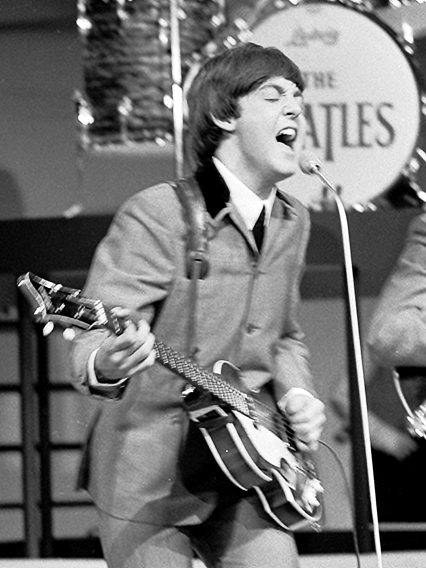Have you seen the documentary Eight Days a Week about the touring days of The Beatles? It is a fascinating look at what made one of the most successful bands in music history.
It also provides great insight into the creative process. Paul McCartney, for one, grew up writing songs and playing guitar, while most other people were watching soccer.
Though he didn’t know many people like him, he plugged away. He kept writing. He kept playing.
One day, he met John Lennon, the first person he knew who also wrote songs. The rest, as they say, is history.
When was the last time you went to a movie by yourself?
I don’t mean the last time you were stood up on a date or a friend flaked out on you. I mean the last time you decided to go to a movie, or a play, or a concert, or a gallery, by yourself?
Have you ever done so? It can be quite a remarkable experience. You’ll probably catch yourself looking around once or twice after a joke or a sad moment. It’s a reflex. We are so accustomed to being connected to friends and family, to receiving immediate feedback or cues about the way we should be acting, you might find yourself checking to see whether it’s okay to laugh or cry.
It’s a micro example of a macro problem. We are used to checking our emotions for the people around us, to making sure we’re acting appropriately, that we’ve become better at masking our emotions to fit in than expressing them to stand out.
We’re also accustomed to being with other people. There are safety in numbers, our instincts scream out. Study after study shows the horrible effects of isolation on the human brain. We are hardwired to make friends, to form partnerships, to work together.
But when you take time to step outside of this dynamic, the mind runs free. Observational skills kick in. Awareness is heightened. You can see, hear, and feel how groups change interactions, perceptions, and perspectives.

That experience is creative fuel. For people like McCartney, who intentionally spent countless hours focusing on his craft, it translated to lyrics that millions of people formed a deep connection to.
By holding his creativity sacred, he gave the world an incredible gift.
Today, we are overrun by communication. We are constantly connected to friends, family, and colleagues. If we really audit our time and energy usage, does all of that communication fill us up or zap us out?
If we’re not intentional about how and with whom we share, our creativity, and our value, can be overtaken.
Originally published at movethisworld.com.
Originally published at medium.com


